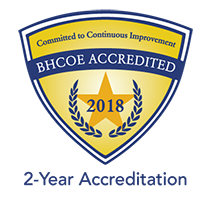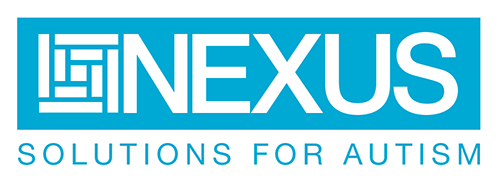ABA Services in Arlington Heights, IL
ABA Therapy at Home
Our approach is always centered around the person first. Our highest priority is that our learners are valued, respected, and considered first in all we do. Our programs are highly tailored around the individual. And even though ABA therapy is challenging and sometimes very difficult (as is all learning for that matter), we are there to value and support you and your child every step of the way.
What Is ABA exactly
ABA, or Applied Behavior Analysis, is a field of study that focuses on the application of the principles, methods, and procedures of the science of behavior, which are the result of years of research of human development and behavior. Applied Behavior Analysis studies the interactions between people and the environment to determine the effects the environment has on a person’s behavior.
So, what is ABA therapy?
ABA therapy takes the principles of Applied Behavior Analysis and uses them to develop socially significant skills and reduce problematic behaviors. A Behavior Analyst designs an individualized treatment plan and goals around your child’s needs, current skills levels, age, and family goals. A typical ABA therapy session will focus on building new skills (i.e., pre-academic skills, independent living skills, social skills, play skills, communication skills, etc.), improve performance in already acquired skills (i.e., faster task completion, more accurate responding, etc.), and decrease unwanted and challenging behaviors such as aggression, stereotypy, self‐injurious behavior, noncompliance, and other socially inappropriate behaviors. It may look like play or like doing chores around the house (what we call “Natural Environment Training”) or sitting at the table working with more school-like materials (in ABA-speak: “Discrete Trial Training”). It will also likely include you as the parent participating in the tasks!
What makes ABA therapy effective?
All the techniques used by our behavior analysts and behavior technicians is rooted in scientific research. The practices that have come out of that research over the last 60 years is ever growing and changing (much like the field of medicine) and the newest, most effective, and best practices are what we constantly strive to use in our daily practice. Every technique we use is based in scientific research shown to be effective and proven over and over in the scientific literature and in practice.
ABA has been shown to be particularly effective for children and adults on the Autism Spectrum because of the focus on observable behaviors, which is a hallmark of all the core symptoms of Autism. In addition, because it is often difficult to determine what might motivate a learner with Autism, ABA is effective at producing behavior change by figuring out those motivators and reinforcing desirable behaviors and skills. Behavior Analysts are also highly skilled at breaking a skill down into measurable components and figuring out which skills are missing in a repertoire. People with Autism often demonstrate atypical patterns of learning and it can be difficult to determine what skills they are missing or why they are not mastering a particular task.
- For more than 50 years, ABA Therapy has shown better progress than any alternative intervention.
- ABA Therapy is recommended by the US Surgeon General for people with autism.
- ABA Therapy is recommended by the American Association of Pediatrics.
Who is on my aba therapy team?
- Board Certified Behavior Analyst (BCBA)
An individual who has received training (master’s level or higher) in Applied Behavior Analysis and more specifically on how to reduce problem behaviors and build skills in people with developmental disabilities. This person will assess your child’s needs, write a treatment plan containing goals for treatment, supervise your team, provide parent training, monitor progress, and generally be your point person. You may meet more than one BCBA over the course of your child’s therapy, as we like to work collaboratively to make sure we share expertise for maximum progress.
- Program Manager
An individual who has completed their graduate education and is in the process of completing the required internship hours for board certification and has multiple years of experience working in the field. This person will work directly with the BCBA to ensure that programming, materials, goals, and treatment targets are up to date. This person may also be a Board Certified Assistant Behavior Analyst (BCaBA). - Registered Behavior Technician (RBT)
An individual who has completed the Behavior Analyst Certification Board requirements for direct service providers, including 30 hours of training and passing the RBT exam. In addition, Nexus requires that our RBTs do an additional 20 hours of 1:1 training and demonstrate competency in the skills required to work with an individual client before beginning work. Depending on the number of hours your child receives, you may have multiple RBTs on your team. This person will provide your child’s direct 1:1 therapy on a regular basis.
How many hours of ABA therapy will my child receive?
This really depends on the needs of the child, RBT availability, payment/insurance coverage, the family/child’s availability to attend therapy sessions, level of severity of impact of the diagnosis, the nature of the referral concerns, RBT specialties, and scheduling availability.
Some children receive as few as 2-4 hours per week and some as many 35-40 hours per week. In addition to that, we expect parents to participate in additional parent training sessions no less than once per week.
We work together as a team to determine the best treatment plan for your child.
How long does ABA therapy last?
The team (that includes you as the parents) works together to determine the need for ongoing therapy during monthly meetings with the BCBA and quarterly whole team meetings. Insurance typically provides authorization for 6-months of therapy at a time and requires updates from the therapy team at that interval to establish the need for ongoing therapy.
Some children require multiple years of therapy in order to make significant progress. Others require only 6-12 months. Again, it is dependent on so many variables.
We (that means the NSG team plus you as parents) make the decision to “graduate” a child from therapy when they have closed the gap with peers based on assessment and observation. Our goal is always for independence and transition to other services or getting needs met through other avenues in the community. We will support you throughout the entire process.
Parent Support
Parents are a vital part in any ABA therapy program. Your child will grow so much faster and greater if you are able to apply the teaching practices we use outside of sessions as well. Much like your child’s individualized program, the parent support or training component is also very individualized. You will participate with your child and the RBT during a typical session, giving directions, observing, playing, or helping with a task. You will also have 1:1 sessions with your BCBA for Behavioral Skills Training, which is when we teach you more of the principles of ABA and how to use things like positive reinforcement, skill shaping, task chaining, and differential reinforcement outside of therapy. Your team is also available for support “after hours,” because as we all know, usually the difficulties come up when no one else is there to help.
We also provide a level of support that is parent support only. Some learners have a great skill repertoire, but you as a parent would like more education in how to work with them or help them as they grow. Parent support only is conducted by a BCBA and will occur for anywhere from one hour to ten hours per week and can be covered by insurance or private pay.
Advocacy in Schools
Our advocacy services include a review of IEPs to ensure that goals align with student needs, observation of the learner in the school environment, consultation with school staff, and attendance at IEP meetings. Advocacy is considered an ongoing part of any in-home ABA therapy program, but advocacy can also be a stand alone service.
Above all, our focus in advocacy is building a collaborative relationship with your child’s school team so that the process is solutions focused.




Social Skills Groups
Once foundational skills are developed, learning to work and play with peers is vital for further success in the community and at school. Our groups take a practical skill focus, with excursions into the community to places where kids of the same age typically spend time. We might learn about a movie theater and the hidden social rules of that setting one week and then the next week attend a movie as a small group. We might learn about measurement and baking one week and then get together and work as a team to bake cupcakes for a friend’s birthday another week. Our social skills groups are supported by a BCBA who develops goals tailored to the groups participants and run by Program Managers (highly skilled RBTs in the process of pursuing master’s degrees in ABA). The groups are run on 6 or 8 week sessions (similar to a park district program) and are conducted in same age and similar skill groups.